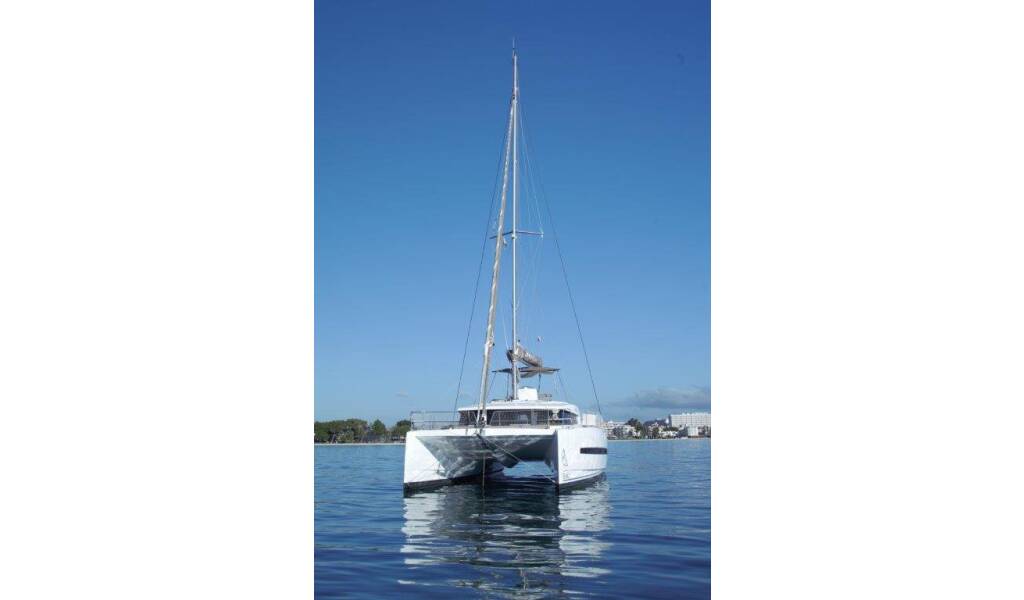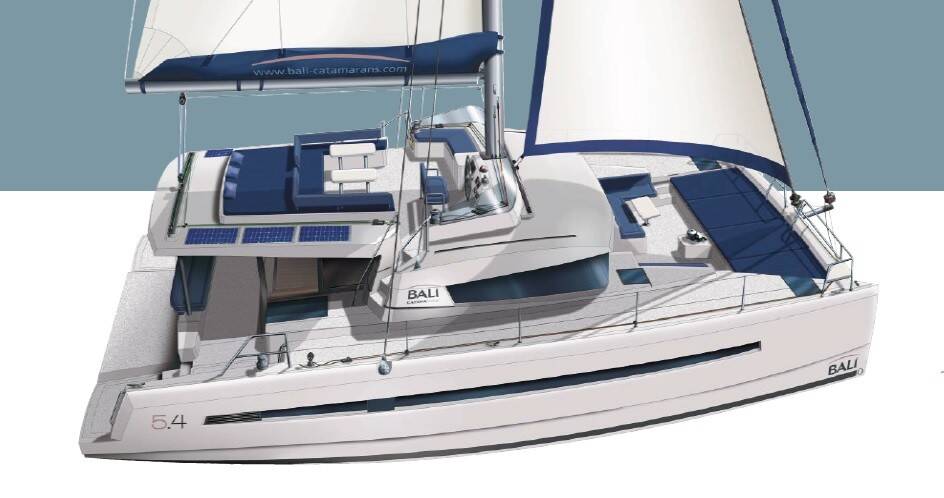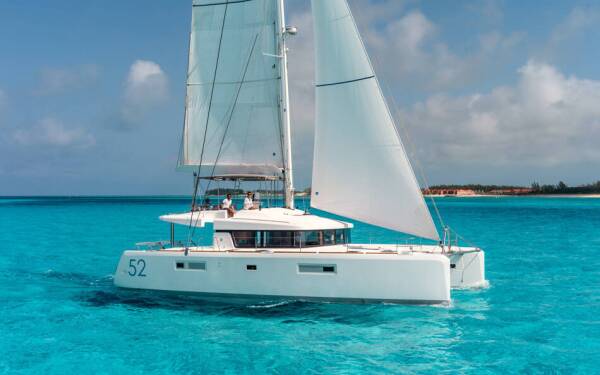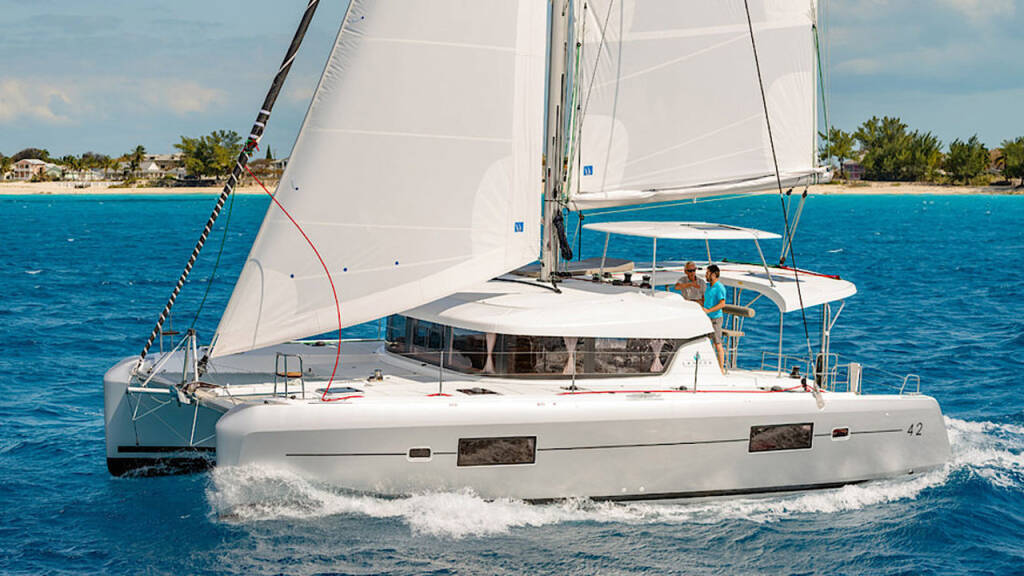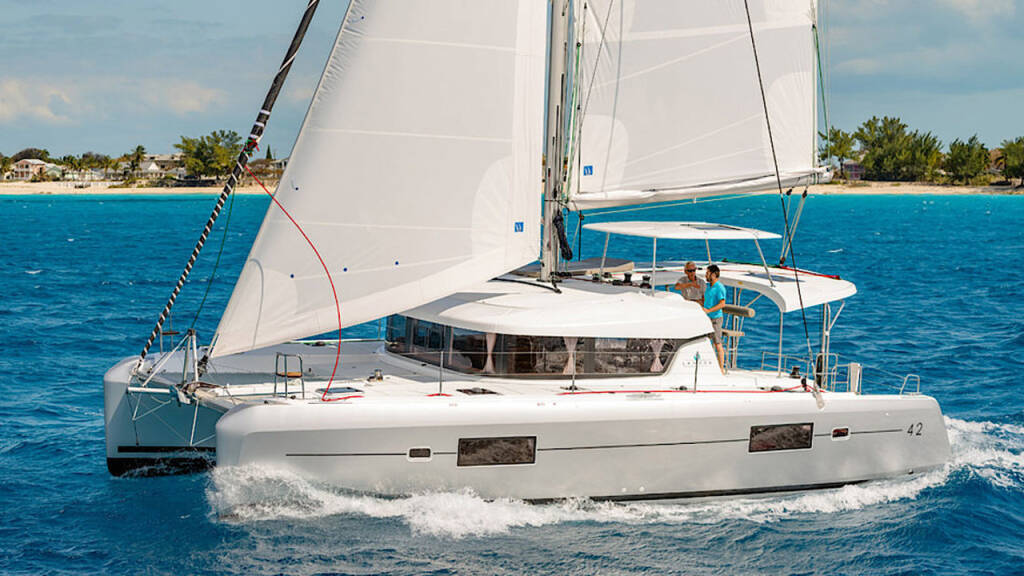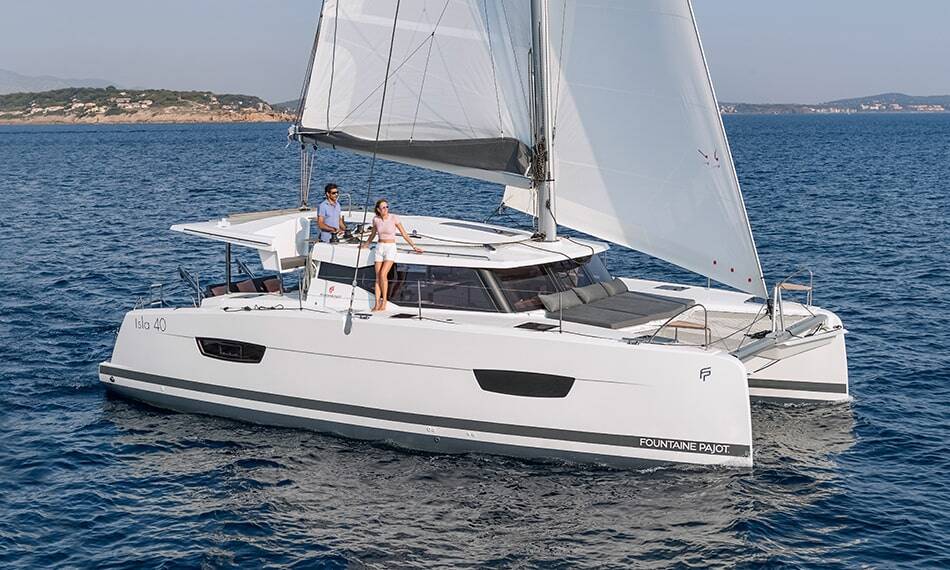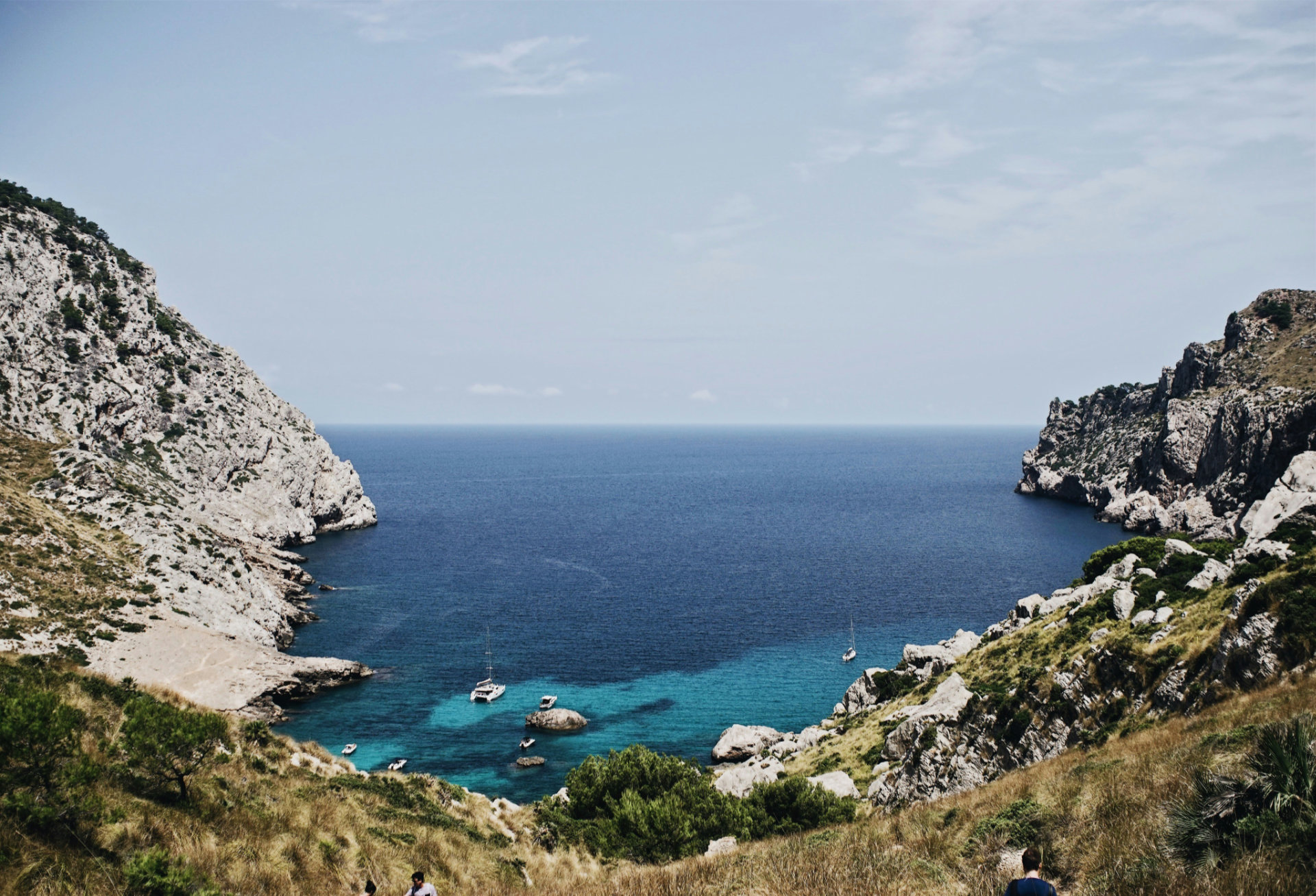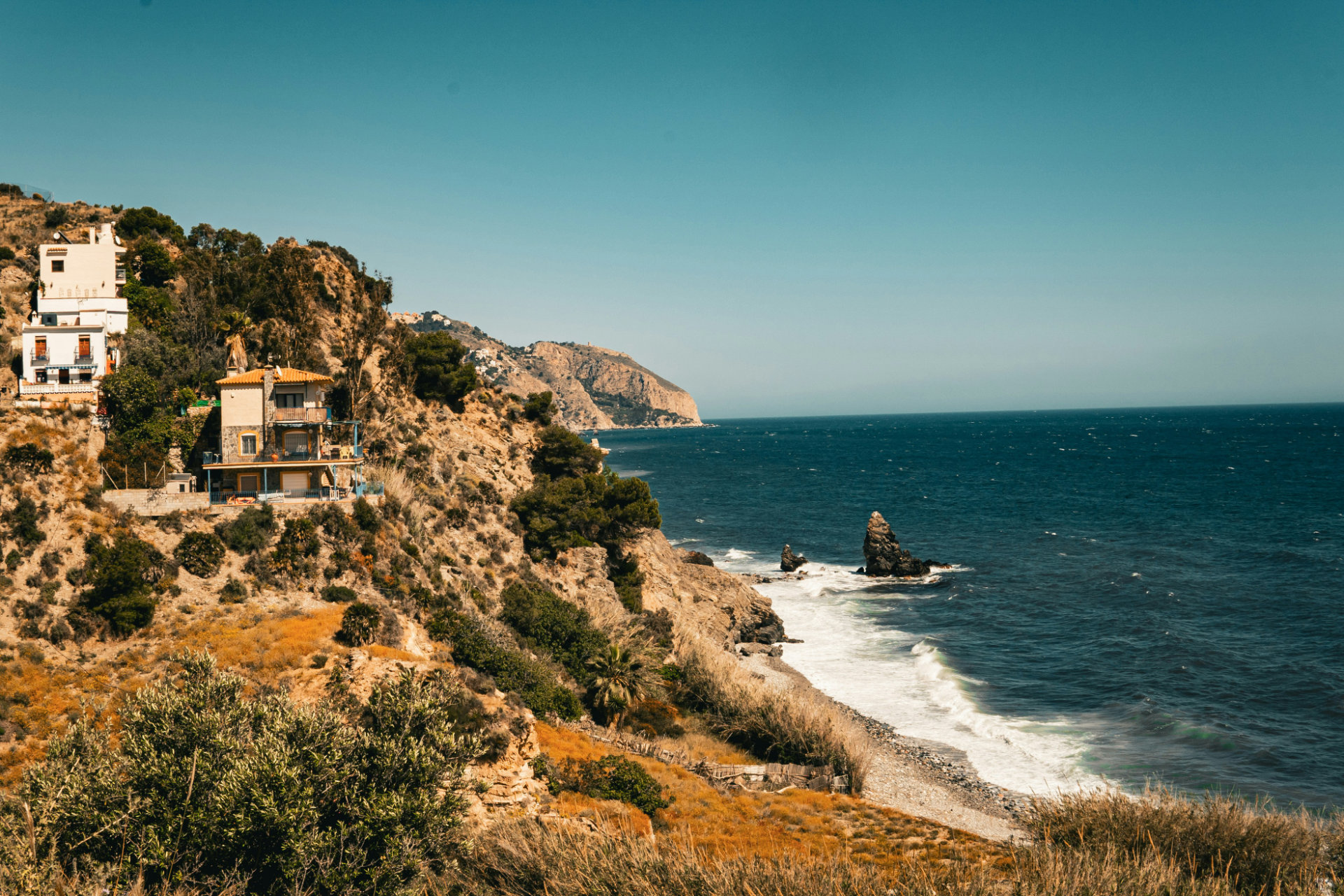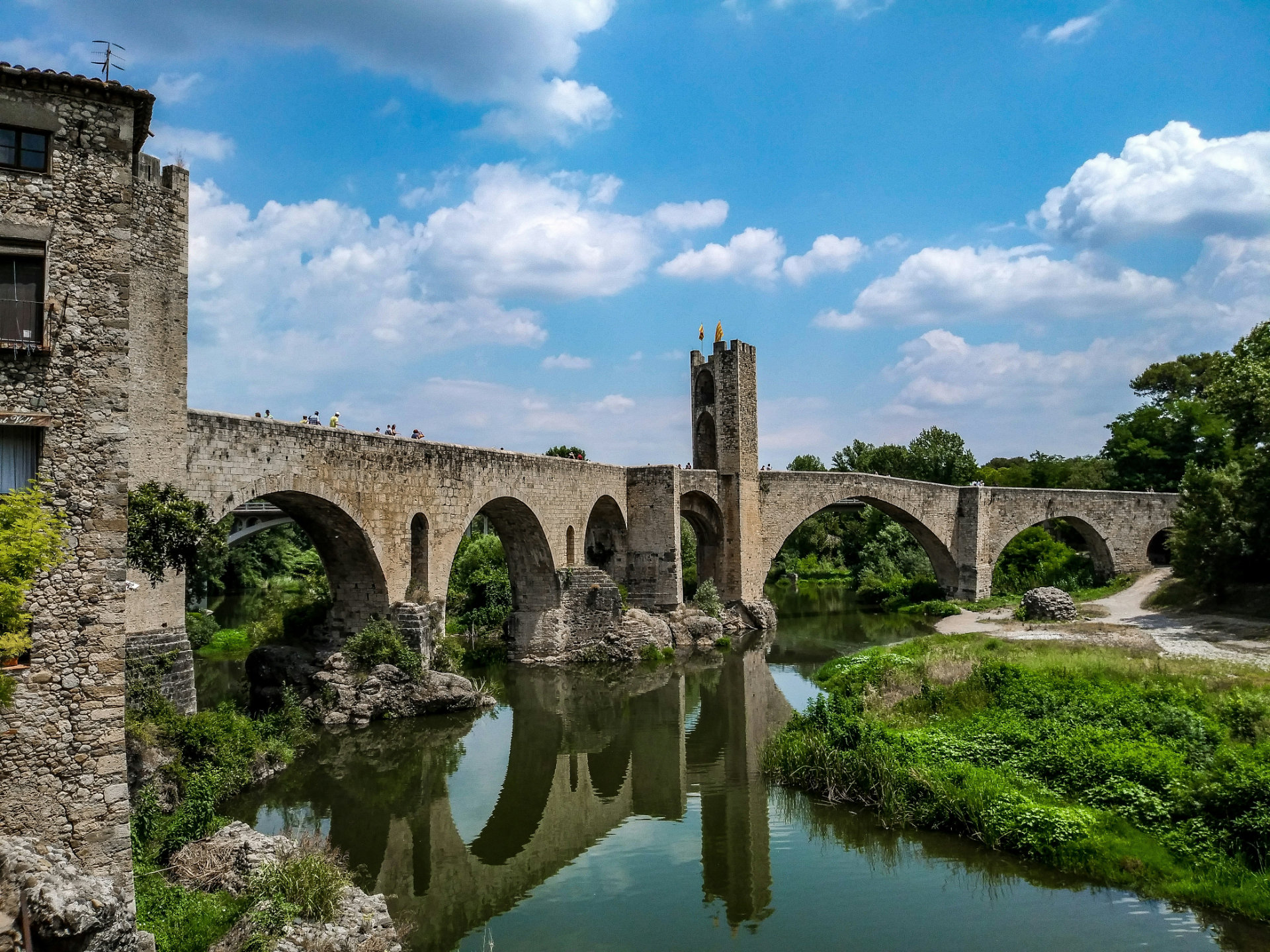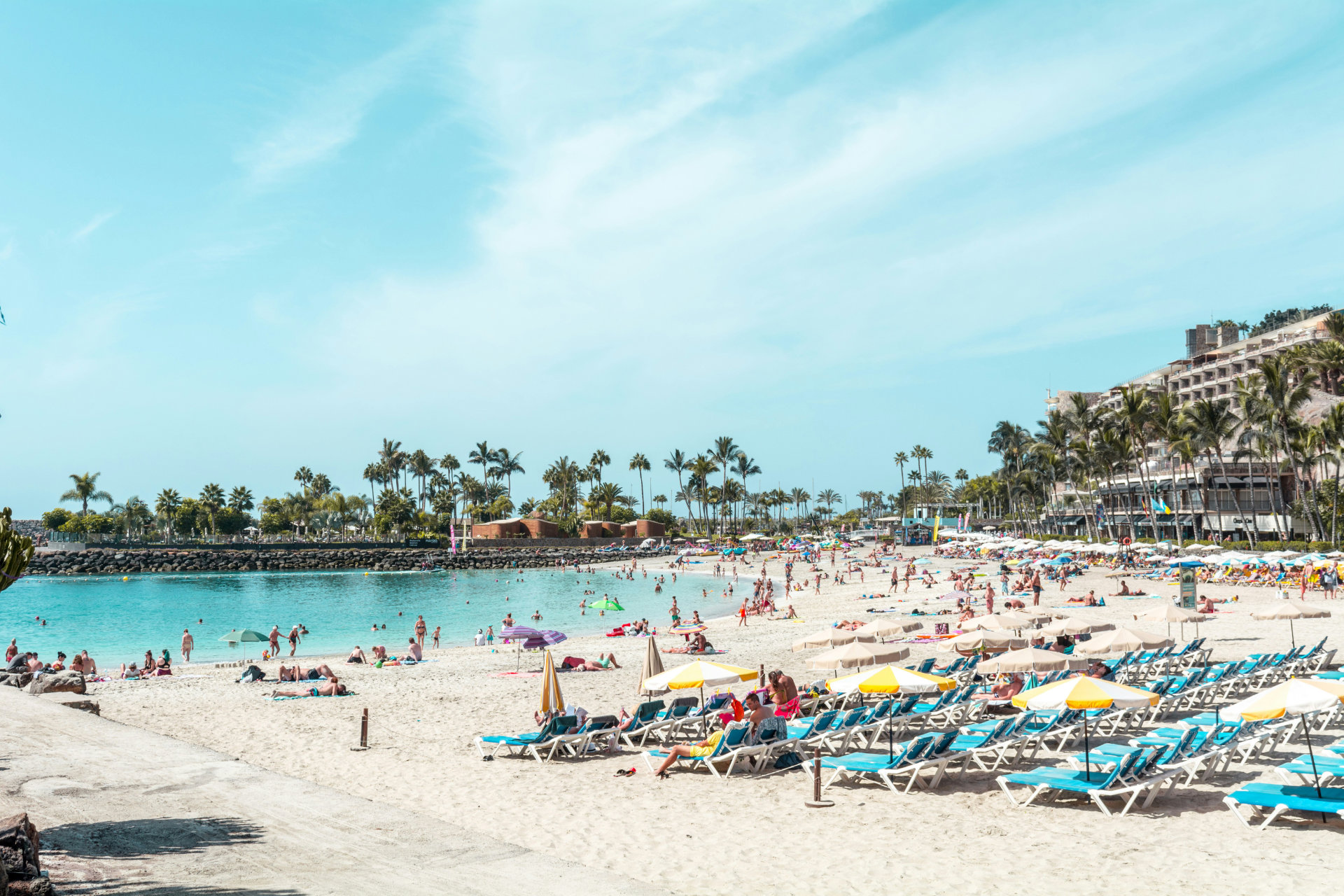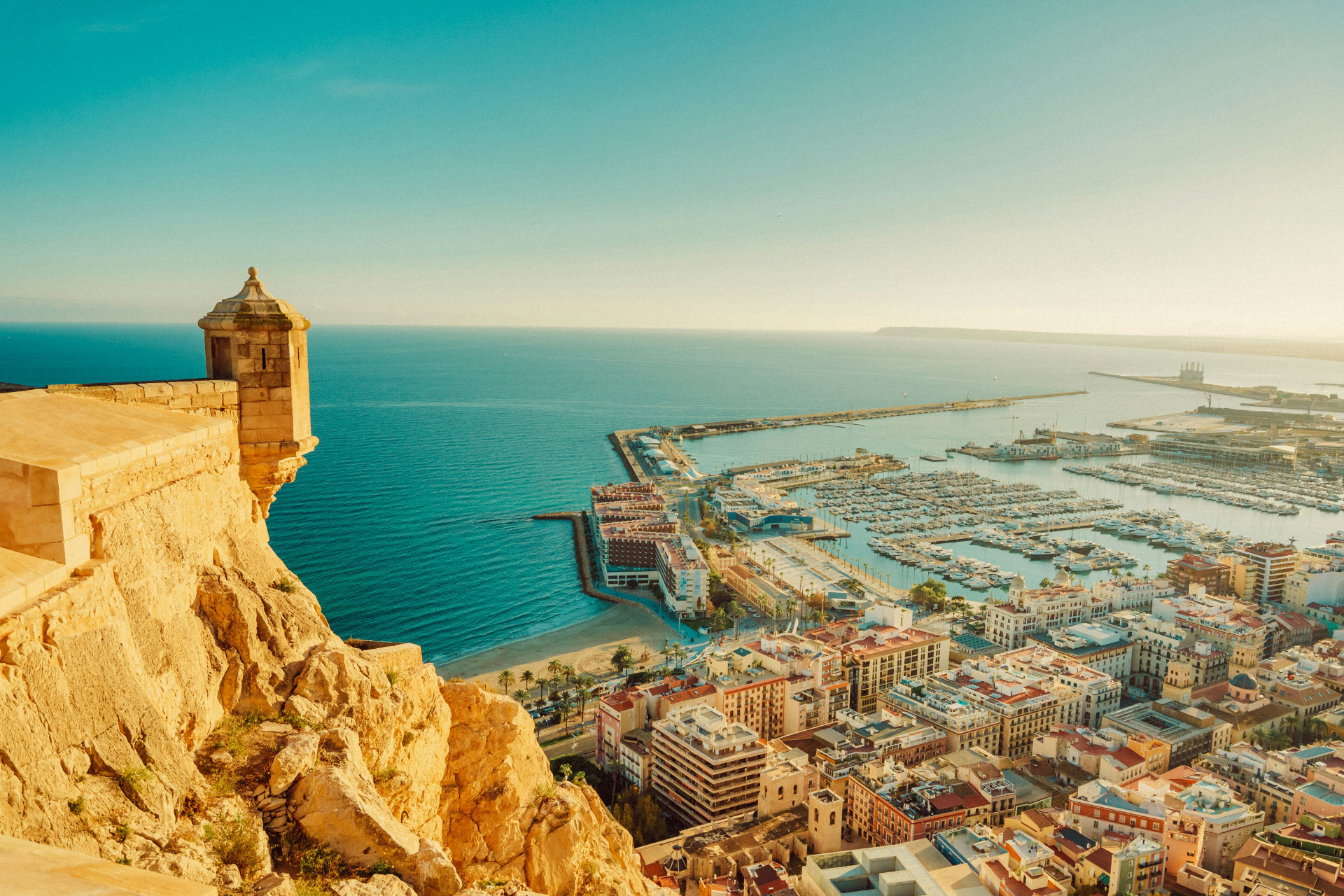Spain
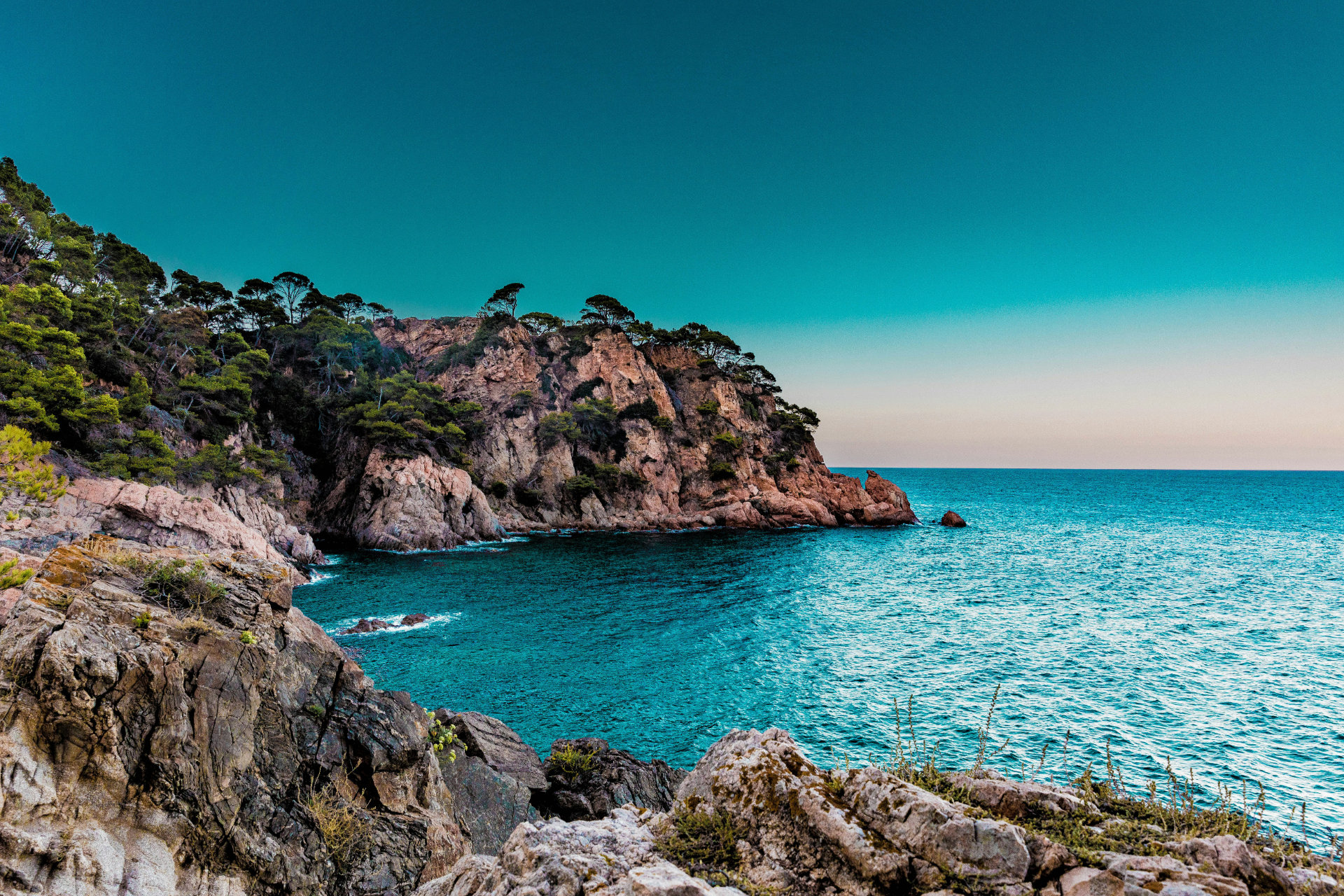
Spain: a land of diversity and joie de vivre
A land of colour, history and cultural diversity, Spain is a fascinating destination offering both historical wonders and breathtaking natural beauty. From the rugged coastline of the Costa Brava to the open plains of Andalusia, from the bustling streets of Madrid to the winding lanes of Barcelona, Spain offers travellers an unrivalled blend of the traditional and the modern.
The country is famous for its unique architecture, including the works of Antoni Gaudí, whose unfinished Sagrada Família basilica adorns the heart of Barcelona. The Moorish influences in Granada, seen in the magnificent Alhambra, are a testament to Spain's rich history. In addition to its historical treasures, nature plays a major role: the picturesque beaches of the Balearic and Canary Islands, the imposing mountains of the Pyrenees and the tranquil olive groves and vineyards of the interior attract nature lovers and those seeking relaxation alike.
Spanish cuisine is as varied as the country itself. From the famous paella of Valencia to savoury tapas and sweet churros, Spain's culinary traditions are world-renowned. Not to mention the vibrant festivals and traditions such as Semana Santa or the exuberant Tomatina.
Spain offers an unrivalled wealth of experiences, whether cultural, natural, gastronomic or adventurous. It is a country that invites you to live every moment to the full and to be infected by its energy and joie de vivre.
Climate and Sailing Conditions in Spain
Weather and climate

Due to its geographical diversity, Spain has a range of climates that affect sailing conditions in different regions. The Mediterranean coast, with the popular sailing areas of Costa Brava, Costa Blanca and the Balearic Islands, has a typical Mediterranean climate with hot, dry summers and mild winters. Temperatures often exceed 30°C in summer and rarely drop below 10°C in winter. The warm temperatures and sunny skies provide good sailing conditions all year round, with the best time to sail being between April and October.
The Atlantic coast of northern Spain, particularly the Basque Country and Galicia, has a temperate climate. Summers are cooler and winters wetter. The influence of the Atlantic Ocean creates stronger winds and cooler temperatures, which can be particularly challenging for experienced sailors. The best time to sail is late spring and summer.
The Costa del Sol and Andalusia, in the south of the country, have a subtropical climate with very hot summers and mild winters. Wind conditions are particularly stable in the summer, making this region ideal for sailing and watersports.
Sailing conditions

The Spanish Mediterranean coast offers calm waters and moderate winds, ideal for beginners and recreational sailors. In the Balearic Islands, sailors will find perfect conditions with constant summer breezes and a variety of well-equipped marinas. The Tramontana wind on the Costa Brava can be stronger at certain times and requires caution.
The Atlantic coast is known for its unpredictable weather, with stronger winds and more challenging conditions, offering exciting adventures for experienced sailors.
All in all, Spain is a varied sailing area with different climates, suitable for both beginners and experienced sailors.
Travel tips for yacht charter clients: Getting to Spain
Plan your trip: For yacht charter customers who want to explore Spain, good travel planning is crucial. Spain has many international airports close to the best sailing areas. The main airports are Barcelona (Costa Brava), Palma de Mallorca (Balearic Islands), Malaga (Costa del Sol), Alicante (Costa Blanca) and Madrid, the country's central hub. Travellers to the Canary Islands can use Gran Canaria or Tenerife airports.
Transport to the marina
There are several options for getting to the marina from the airport:
Hire a car: There are car hire companies at all the major airports in Spain, allowing sailors to get to the marina in comfort and with flexibility during their stay.
Taxis and transfers: Taxis and private transfers are available in most coastal areas to take charter guests directly to the marina.
Public transport: In popular cruising areas such as Mallorca, Barcelona or Alicante, there are well developed bus and train services which provide a cheap and easy alternative.

Important documents
Yacht charter clients should ensure that they have all the necessary travel documents:
Sailing licences: A valid sailing licence is required to charter a yacht in Spain, proving that you are qualified to operate a boat.
Passport/ID card: An identity card is sufficient for EU citizens, while non-EU travellers require a valid passport.
Visa: Non-EU nationals should check if a visa is required for entry.
Best time to go: The best time to sail in Spain is between April and October, when the weather and sailing conditions are most stable. Summer temperatures are ideal for longer trips, especially in the Mediterranean.
Preparation and provisions
Spain's well-equipped marinas often offer a variety of services, including supermarkets and chandleries. It is advisable to stock up on all the necessary provisions and equipment for a longer trip before setting sail. Most marinas also offer services such as fuel, restaurants and showers to ensure a comfortable start.
With these tips in mind, yacht charter customers will be well prepared for their trip to Spain and can enjoy the country's picturesque coasts and islands to the full.
Geographical Location and Coasts of Spain
Spain is located in the southwest of Europe on the Iberian Peninsula, which it shares with Portugal. It borders France and Andorra to the north, Portugal to the west and the British enclave of Gibraltar and the Mediterranean Sea to the south. Spain has an impressive coastline of around 5,000 kilometres, which can be divided into three main sections: the Atlantic coast, the Mediterranean coast and the Canary Islands in the Atlantic.
Mediterranean coast

The Spanish Mediterranean coast, stretching from the French border in Catalonia to Andalusia, is one of the most famous and popular coastal regions.
It includes famous sailing areas such as the Costa Brava, the Costa Blanca, the Costa del Sol and the Balearic Islands.
The warm, clear waters of the Mediterranean and well-equipped marinas make this a yachtsman's paradise.
The Mediterranean coast offers a mix of lively resorts and quiet coves ideal for anchoring.
Atlantic coast

The Atlantic coast in northern Spain, along the regions of Galicia, Asturias and the Basque Country, is rougher and more dramatic.
The waves and winds of the Atlantic create challenging sailing conditions that are particularly exciting for experienced sailors.
The Spanish Atlantic coast is characterised by impressive cliffs, rocky coves and traditional fishing villages.
This coastal region is less crowded, but offers exceptional natural experiences and sailing adventures.
Canary Islands

Located approximately 1,000 kilometres south of the Iberian Peninsula in the Atlantic Ocean, the Canary Islands are also part of Spain. The volcanic islands offer a mild climate all year round and are an ideal destination for sailors looking for tropical conditions and varied sailing areas. The islands, which include Tenerife, Gran Canaria, Lanzarote and Fuerteventura, are renowned for their varied landscapes, from rugged coastlines to wide sandy beaches.
The Spanish coast offers an enormous variety of sailing areas, from the calm waters of the Mediterranean to the challenging waves of the Atlantic. Whether you are a coastal sailor or an Atlantic cruiser, Spain has an area to suit every type of sailor.
Catalonia

Located in the north-east of Spain, Catalonia offers an impressive coastline along the Costa Brava, renowned for its rugged cliffs, picturesque coves and historic coastal towns such as Cadaqués. This region attracts sailors for its breathtaking scenery and sheltered anchorages. Its proximity to the vibrant metropolis of Barcelona offers a perfect combination of culture and coastal experiences.
Sailors will find first class marinas and can take day trips to the many charming villages along the coast. Known for its Mediterranean joie de vivre and culinary diversity, Catalonia's warm summers make it an ideal sailing area from May to October.
Andalusia

Located in southern Spain, Andalusia combines the sun of the Costa del Sol with the region's traditional culture. Sailors appreciate the coast for its calm Mediterranean waters and good sailing conditions.
Málaga and Marbella are popular starting points for sailing trips, while further west Cadiz and Tarifa offer access to the Atlantic. The region is renowned for its pleasant, warm climate, making it ideal for sailing all year round.
Andalusia boasts charming coastal towns, Moorish architecture and warm hospitality. On the water, sailors will find picturesque coves and in the towns, excellent restaurants serving traditional Spanish cuisine.
The Balearic Islands
The Balearic Islands, including Mallorca, Menorca, Ibiza and Formentera, are one of the most popular sailing areas in the Mediterranean. The archipelago offers crystal clear waters, stunning beaches and a diverse sailing area with well equipped marinas.
Mallorca, the largest island, is renowned for its rugged coastline and charming villages such as Deià. Ibiza offers a vibrant nightlife and hidden coves, while Menorca is considered quieter and offers unspoilt nature.
The Balearic Islands offer perfect sailing conditions from May to September and the sparkling Mediterranean attracts sailors from all over the world every year.
Canary Islands
Located in the Atlantic Ocean off the coast of Africa, the Canary Islands offer a mild climate throughout the year. The archipelago, which includes Tenerife, Gran Canaria, Fuerteventura and Lanzarote, is a popular sailing area for experienced sailors. The coasts of the Canary Islands are of volcanic origin, with rugged landscapes and long sandy beaches. The islands offer a mix of challenging sailing conditions, especially in winter, and quiet coves. Numerous marinas and ports offer well-equipped anchorages. The Canary Islands are renowned for their unique natural environment, including impressive volcanoes and national parks that attract visitors from all over the world.
Galicia
In north-western Spain, Galicia is a rugged, green region with a rugged Atlantic coast. Sailing conditions here are more challenging, with stronger winds and often bigger Atlantic waves. La Coruña and Vigo are important ports and offer excellent marinas for sailors. The rugged coastline and deep estuaries offer many sheltered coves, ideal anchorages for sailors. Galicia is also renowned for its fresh seafood and traditional cuisine. The region has a rich Celtic history and offers cultural highlights such as the Cathedral of Santiago de Compostela.
Valencia
On the east coast of Spain, the region of Valencia includes the Costa Blanca, which is characterised by long sandy beaches, rocky coves and clear waters. Sailors especially appreciate the light winds and mild climate. Alicante and Valencia itself are major ports with well-developed marinas and sailing clubs. The region is also famous for events such as the America's Cup. Sailors will find quiet coves, charming fishing villages and lively towns. Valencia is also a centre of Spanish culture and home to the famous paella.
Historical, culinary and cultural highlights of Spain
Historical heritage

Spain is a country with a rich and varied history, rooted in different cultures and civilisations. From the ancient Romans, who left impressive structures such as the Aqueduct of Segovia, to the Islamic domination, whose influence can be seen in monumental buildings such as the Alhambra in Granada or the Mezquita in Cordoba, the country reflects a unique fusion of cultures. The Reconquista, in which the Christian kingdoms gradually reclaimed the Islamic territories, shaped Spanish identity. The voyages of discovery under the Crown of Castile, including the famous expedition of Christopher Columbus, made Spain one of the most powerful nations in the world. Cities such as Madrid, Seville and Barcelona are vibrant reminders of this history.
Culinary delights
Spanish cuisine is world famous for its freshness, variety and simple yet delicious flavours. Each region has its own specialities: in the south there is the famous paella of Valencia, based on rice, seafood or meat. The culture of tapas, or sharing small dishes, is an important part of the Spanish way of life. Andalusia and Madrid are home to some of the best tapas bars. Spain is also home to Jamón Ibérico, one of the world's finest hams, and traditional dishes such as gazpacho, a cold vegetable soup. Spain's wine production is also outstanding, particularly in the Rioja and Ribera del Duero regions, which produce some of the country's finest wines.
Cultural diversity

Spain is a country full of culture and traditions that are deeply rooted in the daily lives of its people. Each region has its own customs and festivals. Flamenco and Andalusian music are world famous for their intense emotions and passionate rhythms. Semana Santa (Holy Week) in Seville is a highlight of the Spanish religious calendar, with elaborate processions parading through the streets. Another famous festival is the Tomatina in Buñol, where participants throw tomatoes at each other. Modern art also plays an important role in Spanish culture, with world-famous artists such as Pablo Picasso, Salvador Dalí and Joan Miró whose works can be admired in the country's museums.
All in all, Spain is a country with an impressive history, world-class cuisine and vibrant culture - a perfect blend that attracts visitors from all over the world.
Spain is a country of striking contrasts and unparalleled diversity. With a rich history reflected in its majestic monuments and historic cities, the country offers a profound cultural experience. From Catalonia to Andalusia, the different regions present a fascinating blend of Moorish influences, Christian traditions and Roman remains, all of which have contributed to creating a unique cultural mosaic.
In addition to its history, Spain has a vibrant and diverse culture. Festivals, music and dance are part of everyday life and each region has its own traditions that are celebrated with pride. From the fiery flamenco of Andalusia to the bullfights and impressive processions of Semana Santa, Spain is a land of joie de vivre.
Spain is a foodie's paradise. With a wealth of regional specialities that combine fresh ingredients and authentic cooking techniques, the country never fails to surprise. Tapas, paella, gazpacho and delicious Jamón Ibérico are just some of the highlights on the plates of Spanish restaurants.
Whether it is the dreamy beaches of the Mediterranean coast, the green landscapes of the north or the lively streets of the cities, Spain offers a wealth of experiences. With each visit, new facets of this beautiful country can be discovered, and visitors are always welcomed with open arms.
Luxury Yacht Charters in Spain – Discover the Mediterranean in Style
Explore Spain’s stunning coastlines with a private yacht charter, from the lively beaches of Costa del Sol to the pristine coves of the Balearic Islands. Enjoy the perfect blend of culture, natural beauty, and Mediterranean luxury on a yacht designed for unforgettable Spanish adventures.
The Balearic Islands
The Balearic Islands, a stunning archipelago in the western Mediterranean, are one of Europe's most popular tourist destinations. The main islands of Mallorca, Menorca, Ibiza and Formentera offer an impressive variety of landscapes, cultures and experiences that make the archipelago a true paradise for holidaymakers and sailors. An autonomous region of Spain, the islands are renowned for their unparalleled natural beauty, rich history and vibrant nightlife.
Andalusia
Andalusia, the southernmost region of Spain, is a land of contrasts, where cultural traditions, breathtaking landscapes and a turbulent history come together. Situated between the Mediterranean Sea and the Atlantic Ocean, the region has a rich cultural past shaped by the Moors, Romans and later Christian kingdoms. Cities such as Seville, Granada and Cordoba tell the story of these eras through their impressive buildings and monuments, including the Alhambra in Granada, the Mezquita in Cordoba and the Giralda in Seville.
Catalonia
Located in the north-east of Spain, Catalonia is one of the country's most diverse regions in terms of culture and landscape. With its stunning coastline, majestic Pyrenees and vibrant metropolis of Barcelona, Catalonia offers a unique blend of history, nature and modern city life. The autonomous community has its own language, culture and traditions that underline its proud identity.
The Canary Islands
The Canary Islands, a Spanish archipelago off the north-west coast of Africa, are a unique destination that attracts visitors from all over the world with its year-round mild climate, scenic diversity and cultural richness. The volcanic islands offer a fascinating mix of stunning nature, vibrant cities and a relaxed atmosphere.
Alicante
The Alicante region, on Spain's Costa Blanca, is a beautiful and diverse destination, famous for its magnificent beaches, mild Mediterranean climate and vibrant culture. With its picturesque coastal towns, historical attractions and rich culinary tradition, Alicante attracts visitors from all over the world. The provincial capital, Alicante, is a bustling port city that offers the perfect balance between modern city life and traditional Spanish values.

